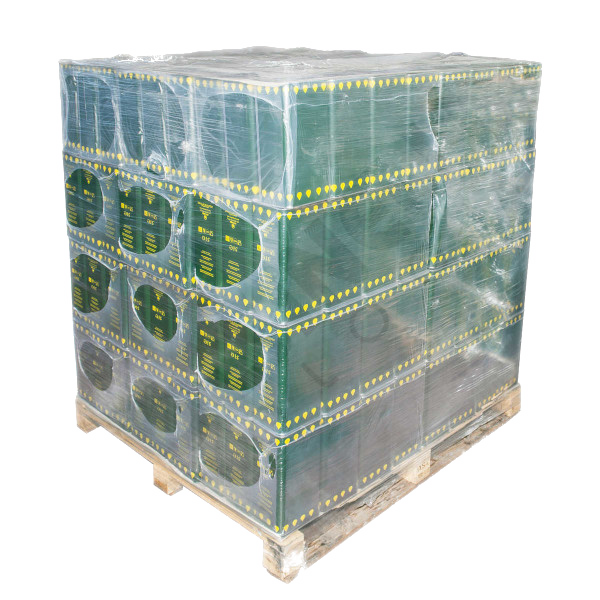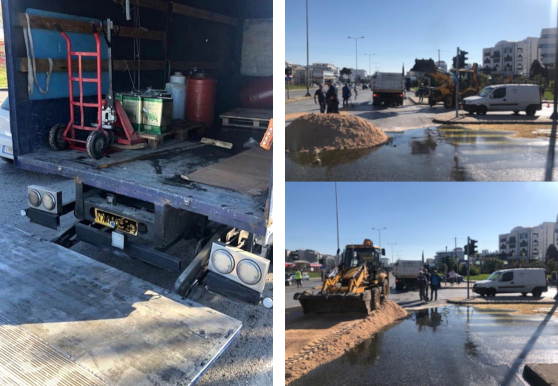Frequently Asked Questions
Which items are prohibited on household/personal goods spedition? Why wooden boxes have to be used?
Commercial speditions with many olive oil tin cans wrapped tightly together in a palette do not require wooden boxes. But when the case is a non-commercial freight no matter bulk or groupage or in palettes, fluid items with high or low viscosity such as olive oil, honey, marmalade, must absolutely be packed in wooden boxes due to security reasons. Firstly of the same cargo and secondly of the rest cargo loaded on the same truck, container or groupage palette. 
A good practice example for a commercial exportation of olive oil. 
A bad practice example on a urban truckage, which caused loss of cargo, environmental damage, a lot of traffic and distress. What considerations should I make before shipping outside EU?
Before shipping outside the European Union, every person or entity must acquire an EORI number. For this puropose one must assign the task to a customs broker through a series of authorisations. Following to the EORI number acquisition, the custom broker will submit to the local Customs Office an Exit Summary Declaration (EXS) based: a. on your invoice and packing list when commercial shipping or b. on your packing list and alleged value when shipping for personal goods The process of the EXS submission is a different service than the spedition itself and the customs broker must always be paid for this. Another important point on the customs clearance is that when exporting, the origin country doesn't impose any duties and taxes, but the destination country, when third country (not E.U. member) usually will do and maybe as well as on personal items, no matter there is absence of a commercial transaction. This is not something new, but the way the customs work for centuries in all countries of the world. Inside E.U. the absence of borders and the existence Free Trade Area, helps that these rules are not applied. | In brief:
 |